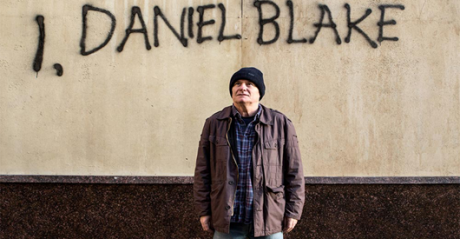This week the [UK] government announced new health and welfare plans to ‘help’ (or bully?) disabled and sick people. Why are the disability charities so quiet?
By
The original political rationale for cuts is now out the window. The last Chancellor, George Osborne, told us unprecedented ‘welfare reform’ cuts were needed to balance the books in an era of ‘austerity’. But new Chancellor Philip Hammond has repeatedly told us that ‘austerity’ is now at an end, despite – or perhaps because of – the financial uncertainty created by Brexit.
So are the kind of damaging and often arbitrary cuts to social security that disabled people have been highlighting over the last six years, likely to come to an end?
Sadly, there’s little sign of that.
Campaigners were heartened by work and pension secretary Iain Duncan-Smith’s resignation earlier in the year – and by a U turn on planned PIP (personal independence payments) cuts. But there is now little if any reason for optimism.
New caps on housing benefit introduced this month will have a massive impact on the lives and wellbeing of tens of thousands of adults and children.
And now, the Department of Work and Pensions has joined up with the Department for Health, to launch a green paper and consultation on “Work, Health And Disability”. We are told the two departments will in future work more closely together in future, and that “being in work can help an individual’s health”.
But will the review take any serious notice of the massive concerns that the highly contentious Work Capability Assessment process has raised among disabled people and those with health conditions – and the enormous body of evidence that they have accumulated to back up their fears?
The green paper on the highly contentious policy suggests instead that the Department for Work and Pensions is considering forcing all sick and disabled people on out-of-work disability benefits to take part in “mandatory” job-centre related activity. This is revealed in a single line of the 92-page green paper.
Disabled people’s organisations have criticised the DWP for excluding them from the Green Paper launch. Yet these are some of the organisations with the greatest understanding and experience in supporting disabled people into employment. As Becki Meakin, general manager of Shaping Our Lives, the national service user and disabled people’s organisation and network said:
“Shaping Our Lives was disappointed not to have been invited to the launch. We welcome opportunities to support grassroots, user-led organisations who offer many different types of support to disabled people seeking employment.
“It is essential that capacity is provided to enable these groups of people with lived experience to influence this policy and we hope that at a time when user-groups are threatened by funding cuts that they will not be overlooked.”
Mark Harrison, chief executive of Norfolk based disabled people’s organisation Equal Lives called the green paper “a massive smokescreen to divert people’s attention away from deaths and suicides that the work capability assessments and sanctions have created”.
Harrison added: “[The Ken Loach film] I, Daniel Blake has shone a spotlight on it beyond the disability movement and those that really understand what is going on”.
While right-wing critics and government spokespeople have attacked Loach’s latest film as unrealistic, postings on social media make clear that for many disabled people the film is telling welfare reform how it is – and spreading the truth more widely.
Perhaps one of the most disturbing aspects of the whole welfare ‘reform’ cuts story, is how muted the response has been from the big mental health and disability charities. Such groups claim to speak for disabled people and have relatively massive resources compared with those of user-led organisations.
Lately, this situation has got even more disturbing. Service users have been holding protests against National Mind because of its support for DWP policies which they say have damaged mental health service users. According to the respected Disability News Service (DNS):
“When Paul Farmer, Mind’s chief executive, left the building to speak to protesters he told them the charity had “no contracts with DWP” and that he was “not interested in future contracts at this stage”. But afterwards, a disgruntled member of Mind staff leaked details that appeared to be from the charity’s internal website, which showed that it was applying to join a DWP framework that will allow it to bid for employment and health-related contracts, each of which could be worth between £2 million and £30 million a year.”
Recently I argued that big charities like MIND should be thinking of giving a tenth of their income to such user led organisations (rather than spending it on central London offices or £100,000 plus salaries for senior managers). It really is time they stood up to be counted if they claim to be the voice of disabled people. If ever there was a time when it was crucial to ‘speak truth to power’ and start making a real difference in challenging discrimination, oppression and politically created barriers building up against disabled people, then it is now.










